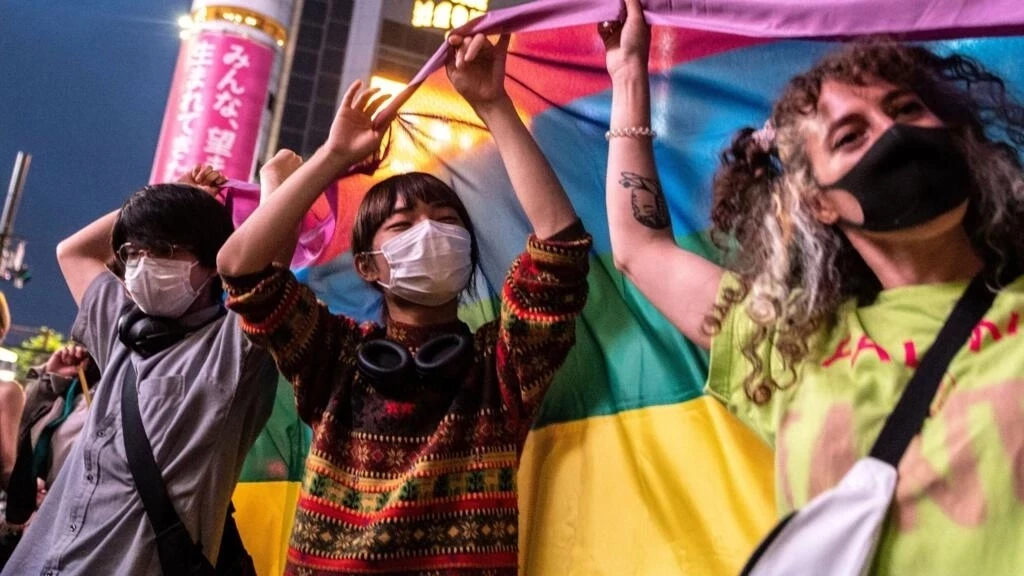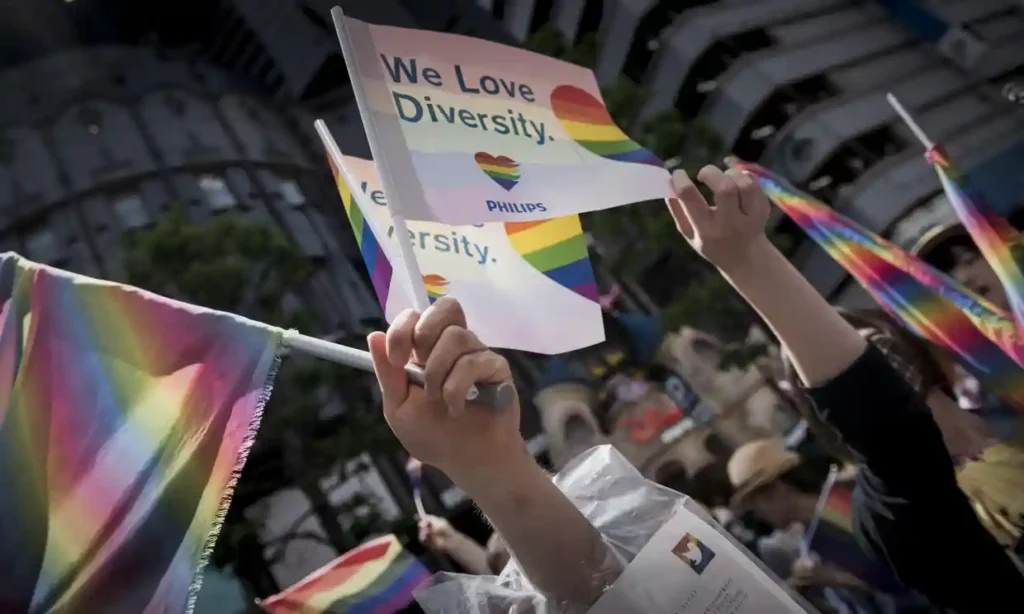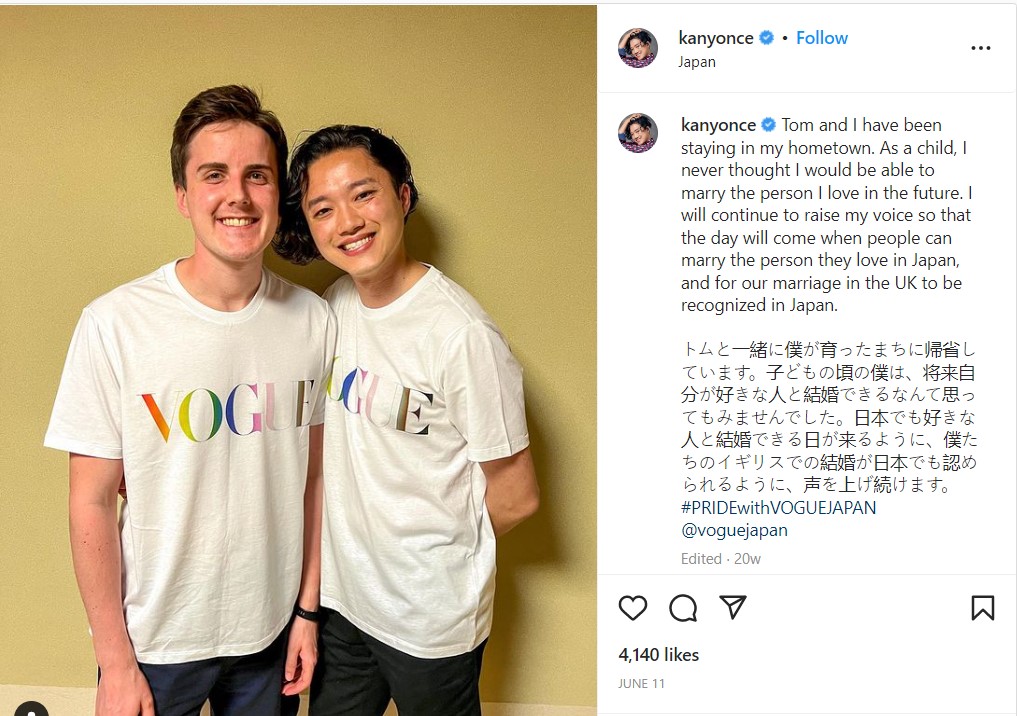The same-sex partnership recognition law was approved by the Tokyo metropolitan government. It will extend some rights currently granted to married heterosexual couples but stops short of recognising same-sex unions as valid marriages.
The status allows LGBTQ partners to be treated as married couples for some public services in areas like housing, health, and welfare, even though it does not confer the same rights as marriage.
Of Japan’s 47 prefectures, Tokyo is the ninth to implement the change. Due to the very slow cultural acceptance of lesbian, gay, bisexual, and transgender people in Asia, the recognition has taken a while to spread across the continent.
Only Japan does not recognise same-sex unions among the Group of Seven nations with the largest economies. The only country or territory in Asia to do so is Taiwan.

Nevertheless, the 14 million-person prefecture that includes the capital of Japan is notable for the policy change. Additionally, it reflects shifting perspectives on the LGBT community.
According to a survey conducted by the Asahi newspaper last year, more voters than ever before, 65 percent of those polled, supported same-sex marriage, up from 41% in 2015.
The Shibuya district became the first municipality in Tokyo to implement the change in 2015, and 16 of the city’s 62 municipalities have done so. Now, the entire capital will be subject to the policy.
Activists hailed the move as a positive first step but pointed out that there is still a long way to go before they are granted the same rights as heterosexual married couples.
These rights will now be available to couples who are both at least 18 years old and who reside in Tokyo or regularly travel there for work or school.

Because of social attitudes, many LGBT people in Japan remain largely invisible for fear of upsetting their loved ones or employers.
137 couples had submitted applications as of Friday morning, according to Tokyo Governor Yuriko Koike’s statement from last week.
The introduction of same-sex partnership certificates, which apply to both commuters and residents of Tokyo, is expected to significantly contribute to the fight against anti-LGBTQ discrimination in Japan.
Our community will feel more inspired to tell family and friends about their relationships without “hiding their true selves” as more members use these partnership systems, Miki predicted.
Because they could not get married in Japan, Kan, who goes by the single-word name Kan, wed his boyfriend in London last year. Kan was featured in the 2019 Netflix series “Queer Eye: We’re in Japan.”

Japan has made modest progress in recent years toward accepting sexual diversity.
Today, more businesses are stating their support for same-sex unions, and gay characters are featured in television programmes.
According to a survey conducted in 2021 by the public broadcaster NHK, 57% of the public supported gay marriage while only 37% opposed it.
Regarding the potential for legislative changes that would recognise same-sex relationships on a national level, Prime Minister Fumio Kishida has been circumspect.
Katie told AFP that “some politicians have made really bad comments, like that we are mentally ill.”
But not all families consist of a mother, a father, and two children. We need to be more adaptable, she said.
Pavan Manzoor is an experienced content writer , editor and social media handler along with a track record of youth-oriented activities in Pakistan and abroad. She was selected as a fully-funded delegate as a leadership fellow in Turkey. She also led a team of 5 volunteers at the week-long Young Professionals Fellowship in Maldives. She is also a member of the Youth Standing Committee on Higher Education.










